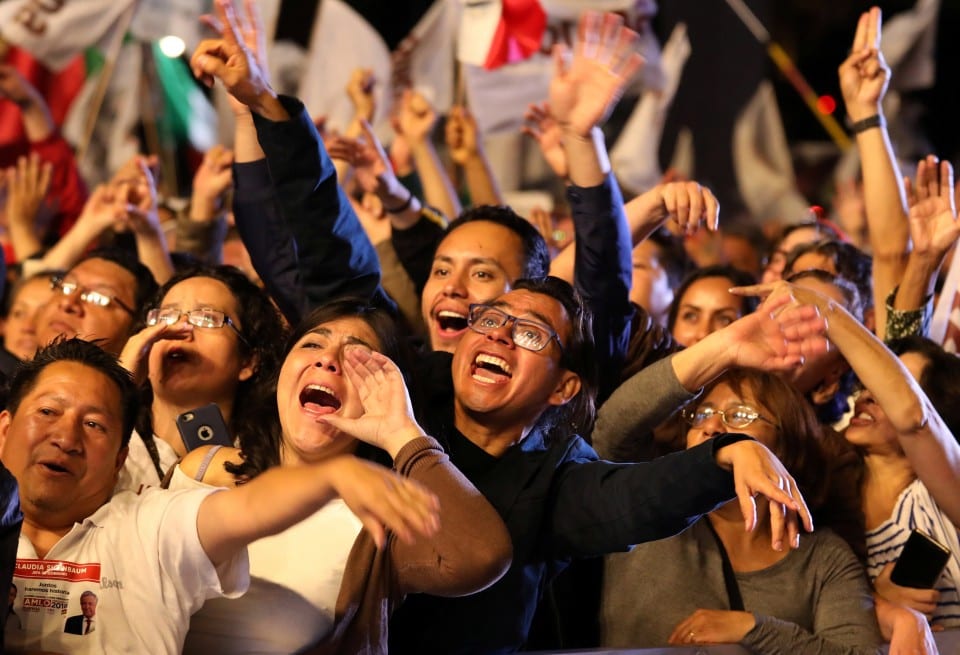Héctor Aguilar Camín is a historian and editor of the monthly magazine “Nexos.”
MEXICO CITY — In the ocean of disillusion that had defined the political environment in Mexico, Andrés Manuel López Obrador found another ocean, just as vast: the desire to believe.
He convinced millions of Mexicans that he will initiate what he calls the fourth transformation of Mexico, a change on par with other great moments of the nation’s history: independence from Spain in 1821; La Reforma in 1867, which established the separation of church and state; and the Mexican Revolution, which broke out in 1910.
Indeed, Mexico satisfied its immense desire to believe in something so big that it can hardly be fulfilled, by giving an absolute majority and control of the Mexican Congress to López Obrador and his National Regeneration Movement (Morena) in elections Sunday. This is the strongest mandate given to any leader and party since the emergence of multi-party democracy in Mexico in 2000.
If López Obrador’s promises of change are excessive, they only speak to the size of the hope his candidacy inspired. That hope drove an overwhelming civic revolt against the status quo, against discredited parties that don’t represent the interests of ordinary people and the corrupt governments that emerge from them.
By empowering a president who wants to reestablish the supremacy of the state over the market, the election also signals a break from all recent Mexican governments and the neoliberal consensus that guided policies for decades. This radical rupture in a governing orientation, combined with the reduction of party pluralism in Congress, spells the foundation of a new political hegemony in Mexico.
Historically speaking, the elections this week mark the end of the first phase of democratization in Mexico, which began in 1988 with the fracture of the long-ruling Institutional Revolutionary Party (PRI) through the split off and ascent of Cuauhtémoc Cárdenas Solórzano’s Party of the Democratic Revolution (PRD).
The second phase is now commencing with the disappearance of that party, the death-throes agony of the PRI and the parallel weakening of the National Action Party (PAN). In short, the three pillars of Mexico’s democratic spectrum have all but collapsed, leaving the political space to be occupied by the new president and his National Regeneration Movement. Morena is, in effect, the new PRI, which ruled Mexico for 71 consecutive years.
If one thing was clear on Sunday, it was that the votes of the dissatisfied were not only counted but recognized without haggling by either their competitors or the electoral institutions.
Many “lópezobradorista” voters, and the candidate himself, went into these elections suspecting fraud and fearing they could be stripped of their triumph by dark arts. In his victory speech, López Obrador acknowledged President Enrique Peña Nieto’s impartiality in the process, and the media’s, which this time behaved, he said, in an exemplary manner. One must also credit the electoral institutions themselves, and the Electoral National Institute in particular, and the million-plus citizens who voluntarily set up the ballotting stations and monitored the vote.
In rejecting the corrupt status quo, the majority of voters have restored the credibility of democracy in Mexico. They became part of it. They rejuvenated it. For once, their voices were heard. And one would expect that, from now on, they will be its guardians.
Whatever the distance between hope and reality as the new government settles in, the critical point for now is that democracy in Mexico has a new legitimacy conferred through the triumph of those who were most dissatisfied with it.
This was produced by The WorldPost, a partnership of the Berggruen Institute and The Washington Post, and translated by Juan Pablo Garcia Moreno.





